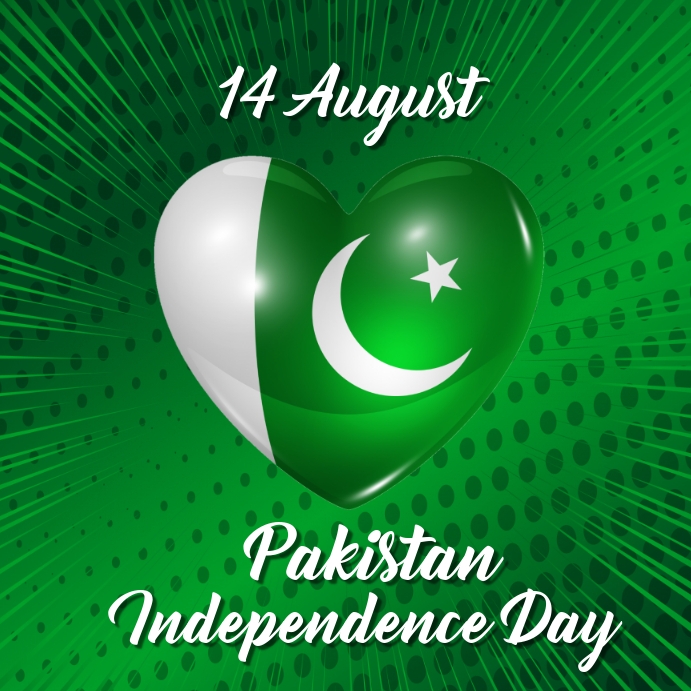Pakistan Independence Day: August 14, Pakistan Zindabad
Significance:
Pakistan Independence Day, celebrated annually on August 14, marks the day in 1947 when Pakistan gained independence from British rule. This historic event led to the creation of Pakistan as a separate nation for Muslims in the Indian subcontinent, following the end of British colonial rule. The day commemorates the sacrifices and struggles of those who fought for the country's freedom and celebrates Pakistan's national identity, sovereignty, and cultural heritage.
Historical Background
- Partition of India: The Indian Independence Act 1947, passed by the British Parliament, led to the creation of two independent dominions: India and Pakistan. Pakistan was carved out as a separate state for Muslims, leading to one of the largest migrations in human history.
- Muhammad Ali Jinnah: The founder of Pakistan, Muhammad Ali Jinnah, played a crucial role in the independence movement. He is revered as the "Father of the Nation."
Celebrations and Traditions
National Flag Hoisting:
- The national flag is hoisted at government buildings, private residences, and public places.
- The main flag hoisting ceremony takes place at the Presidential and Parliament buildings in Islamabad.
Parades and Ceremonies:
- Military and civilian parades are held in major cities, showcasing Pakistan's defense capabilities and cultural diversity.
- The President and Prime Minister of Pakistan deliver speeches, highlighting the day's significance and paying tribute to national heroes.
Cultural Programs:
- Schools, colleges, and cultural organizations organize special programs, including debates, poetry recitations, and national songs.
- Traditional music and dance performances are held, celebrating Pakistan's rich cultural heritage.
Decorations and Festivities:
- Streets, buildings, and public spaces are decorated with lights, flags, and banners.
- Fireworks displays are organized in major cities, lighting up the night sky.
Special Broadcasts:
- Television and radio channels air special programs, documentaries, and patriotic songs.
- Historical films and dramas about the independence movement are screened.
Key Symbols
National Flag:
- The flag of Pakistan, featuring a white star and crescent on a dark green field with a vertical white stripe, symbolizes the country's Muslim majority and minority communities.
National Anthem:
- "Qaumi Taranah," the national anthem of Pakistan, is played at official ceremonies and events. It reflects the country's patriotic spirit and national pride.
Conclusion
Pakistan Independence Day is a time for Pakistanis to reflect on their history, celebrate their cultural heritage, and reaffirm their commitment to the nation's progress and prosperity. The day is marked by a sense of national pride, unity, and a collective aspiration for a brighter future. Pakisan Zindabad


